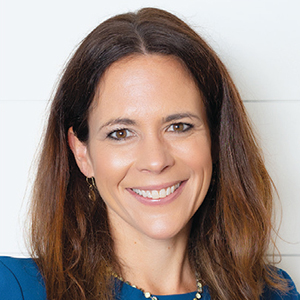
Making Connections – By Jenn Lalli and Kelly Macias
We know about networking – but do we do it?
As training professionals, do you practice what you preach when it comes to networking? If you’re like many of us, all too often the answer is: not exactly. Why?
We certainly understand the benefits of networking — its ability to foster professional relationships, open pathways, build confidence and more. This is precisely why we encourage learners at every stage of their career to take advantage of networking opportunities, many of which we help create.
Still, as training professionals, we often neglect to personally invest ourselves in networking outside of the occasional meet-and-greets we find ourselves attending during professional conferences.
What We Get Wrong About Networking
So, why don’t many of us invest more of ourselves in networking? It may have a lot to do with a common misperception.
Networking is often seen as a strategy to practice only at those “fork in the road” moments in our careers, such as when we’re changing jobs, looking for a new path in our organizations or seeking specific advice. Add to this misperception the sense of anxiety many of us experience when meeting new people, and it’s understandable why we — even when not doing so intentionally — steer clear of networking unless it’s unavoidable.
Clearly, this is a mistake. As previously noted, it’s hardly necessary to extol the virtues of networking to fellow training professionals. We’ve all seen how building professional relationships can open possibilities for advancement, create mentorships, foster learning, improve job performance and strengthen business connections – the list goes on!
The only question, then, should be not if, but how we should expand our networks.
Articulate Your Goals
“Networking,” of course, is an umbrella term encompassing a wide array of interactions that, in turn, can help you achieve many types of goals. Do you want to grow your career? Maybe you want to expand your skill set in other commercial roles. You may even wish to extend your contacts outside the life sciences industry.
Understanding what you’d like to gain from networking can help you frame your networking process and influence how you engage in conversations once you make new connections.
Five Ways to Jumpstart Your Networking Process
Once you have your goals in hand, it’s time to craft a plan that will enable you to succeed. It’s important to be intentional about your networking process. Though making professional connections always includes some measure of serendipity, you’ll want to give yourself the best chance to create connections that will prove beneficial.
As you develop your plan, consider the following:
Tap Into Your Existing Network:
Reaching out to existing contacts to expand your network is a crucial starting point. Leveraging connections you’ve already established can provide valuable insights from familiar voices and access to a wealth of expertise and opportunities beyond your immediate circle.
This also streamlines the networking process, as you look to mutual acquaintances to seek new connections.
Re-Engage a Trusted Mentor or Colleague:
It’s easy to fall out of touch with those you knew from previous organizations. This doesn’t mean, however, these people won’t still have your best interests at heart.
Sharing your networking goals can be a great way to reconnect. You may even find these colleagues suggest others you might speak to as part of your journey.
Capitalize on LTEN Opportunities:
Don’t wait for the next LTEN annual conference to take advantage of your membership. Be proactive. Seek out one of the many local networking receptions LTEN hosts throughout the year. And when you do attend the annual conference, look for ways to make connections outside of formal networking sessions.
Hallways between presentations and supplier partner booth areas are great places to strike up a conversation that just may continue long after the conference.
Explore Professional Associations in Your Area of Interest:
Along with LTEN, many other professional organizations provide events that can help you make connections across the industry. When considering the possibilities, do your homework and ensure the association aligns with your networking goals. To start, you might consider:
- The Healthcare Businesswomen’s Association (HBA), which offers a mentoring program as well as local and national events, both virtual and in person.
- The American Marketing Association (AMA), which hosts local networking groups and provides industry-related information on its website. This may interest you if one of your primary goals is transitioning into a marketing role.
- A life sciences organization specific to your state, such as LSPA (Life Sciences Pennsylvania) and NJ Bio.
Connect Within Your Company:
Don’t ignore the resources right at your own front door. Networking within your organization is essential for fostering collaboration, sharing knowledge and expanding expertise in the context of shared, common goals.
In this environment, networking creates a culture of support and innovation, with access to resources and insights at your fingertips. It also strengthens relationships within your team, while creating connections that can extend beyond the organization.
You might also investigate any mentoring programs — both formal and informal — your organization offers.
Remember It’s a Two-Way Street
A plan of action is great. Still, you’ll need to put that plan into action to reap the benefits — no one else will do it for you.
Knowing this, of course, doesn’t always help. For many of us, the idea of initiating a new connection will always be somewhat unnerving. If you find this to be true, it can help to keep in mind that you have a lot to offer others.
Like any healthy relationship, a good networking connection benefits everyone involved. So, make it one of your networking goals to help someone else succeed.
It may be just the incentive you need to take that all-important first step.
 Jenn Lalli is the senior director of business development and marketing for Encompass Communications and Learning, and a 2023 LTEN Member of the Year. Email Jenn at jlalli@encompasscnl.com or connect through www.linkedin.com/in/jennlalli/.
Jenn Lalli is the senior director of business development and marketing for Encompass Communications and Learning, and a 2023 LTEN Member of the Year. Email Jenn at jlalli@encompasscnl.com or connect through www.linkedin.com/in/jennlalli/.
 Kelly Macias is the associate director of omni channel engagement skills for Novartis Innovative Medicines. Email Kelly at kelly.macias@novartis.com or connect through www.linkedin.com/in/kelly-macias-7b81b57/.
Kelly Macias is the associate director of omni channel engagement skills for Novartis Innovative Medicines. Email Kelly at kelly.macias@novartis.com or connect through www.linkedin.com/in/kelly-macias-7b81b57/.









